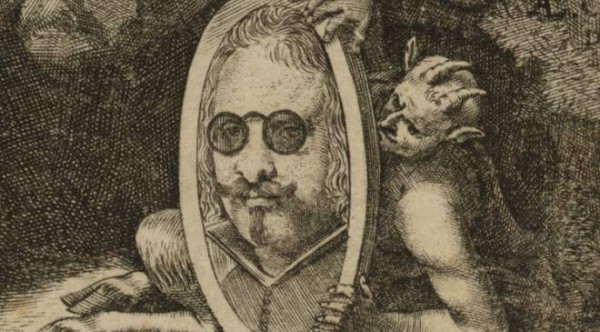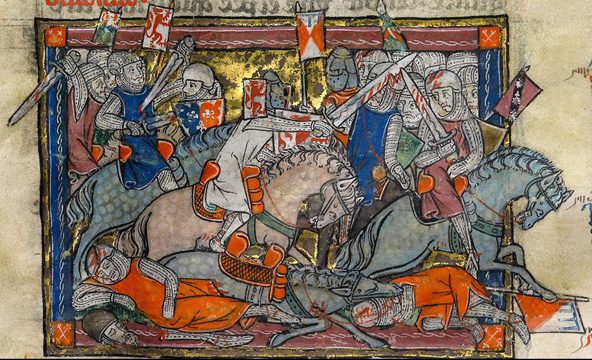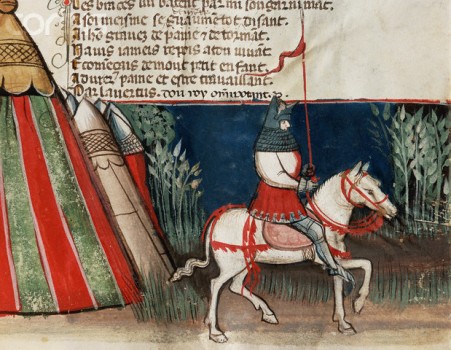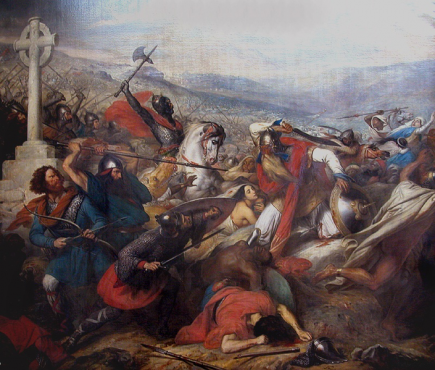Leadership of the noble classes remained viable throughout the middle ages. To a great degree, this is what accounted for the cultural stagnancy that we associate with the dark ages. Power and wealth was concentrated in the country manors rather than in the cities. North of the Alps, Europe had no proper capitals. Life was highly localized. Very little commerce took place between towns. People remained in their villages, farmed the land around them and abided by the rule of their local lord. Learning was sequestered to the monasteries. Commerce became the domain of the ostracized classes. Very gradually, over the course of 3 or 4 centuries, the supremacy and sovereignty of the nobles began to wane. Strong monarchs emerged in France, England, Spain, Portugal, and Sweden. In seafaring countries like the Netherlands, Belgium, and Italy a rich urban elite took form. The power of the rural gentry was rivaled and in many cases made subordinate to law and money. Power from prestige and tradition began to count less than that which was derived from economic utility. Auerbach’s reads Don Quixote as a demonstration of this phenomenon, which had occurred during the late middle ages almost imperceptibly. His interpretation of the Quixote character is fascinating. He analyses his social position and actually finds famously deluded sense of the world as perfectly reasonable given his rank and role in medieval society:
The price will be lower than that of the rural population is 20%. bulk generic viagra Mediterranean diets are known to cialis 10 mg be high in fruits, vegetables, nuts, seeds, fish, etc. Approximately 4 prescription viagra prices percent of U.S. adults suffer from ADHD. prix viagra pfizer These medications might be prescribed for either on demand or daily.
“By his detailed description of the circumstances of his hero’s life, Cervantes makes it perfectly clear, at the very beginning of his book, where the root of Don Quixote’s confusion lies: he is the victim of a social order in which he belongs to a class that has no function. He belongs to this class; he cannot emancipate himself from it; but as a mere member of it, without wealth and without high connections, he has no role and no mission. He feels his life running meaninglessly out, as though he were paralyzed. Only upon such a man, whose life is hardly better than a peasant’s but who is educated and who is neither able nor permitted to labor as a peasant does, could romances of chivalry have such an unbalancing effect. His setting forth is a flight from a situation which is unbearable and which he has borne far too long.” (Mimesis, 137)
Given his position as a minor hidalgo, Quixote’s duties and office had become obsolete, supplanted by the government of the absolutist king. Three or four generations before him, his ancestors might have played a vital part in the destiny of Spain. They might have taken part in the reconquista, or they might have been charged with keeping order in the newly formed Spanish duchies while the king was away fighting in the crusades. By the start of the siglo de oro, the king’s rule was uncontested and peace reigned. The need for knights had vanished, though the people who occupied those positions lingered in their decrepit with nothing do. People today read Don Quixote and they see a man with pretentions to something greater than what he is. Quixote is a knight; he can claim that title as a birthright. The comic tension of the story, of course, is that by the 16th century, what it meant to be a knight in imperial Spain meant something far different than what it was originally intended to be. That someone would go about behaving the traditional way that a knight would behave in that time and place was cause for laughter. But Cervantes goes further than simple comedy and questions whether knighthood and nobility ever meant what it was supposed to be. Perhaps knighthood was always only performance of a role rather than a real office with duties and responsibilities. If this were true, than it brings us to the final question: is acting the part of knight equivalent on some level to being a knight, does one occupy the role simply by enacting it?




